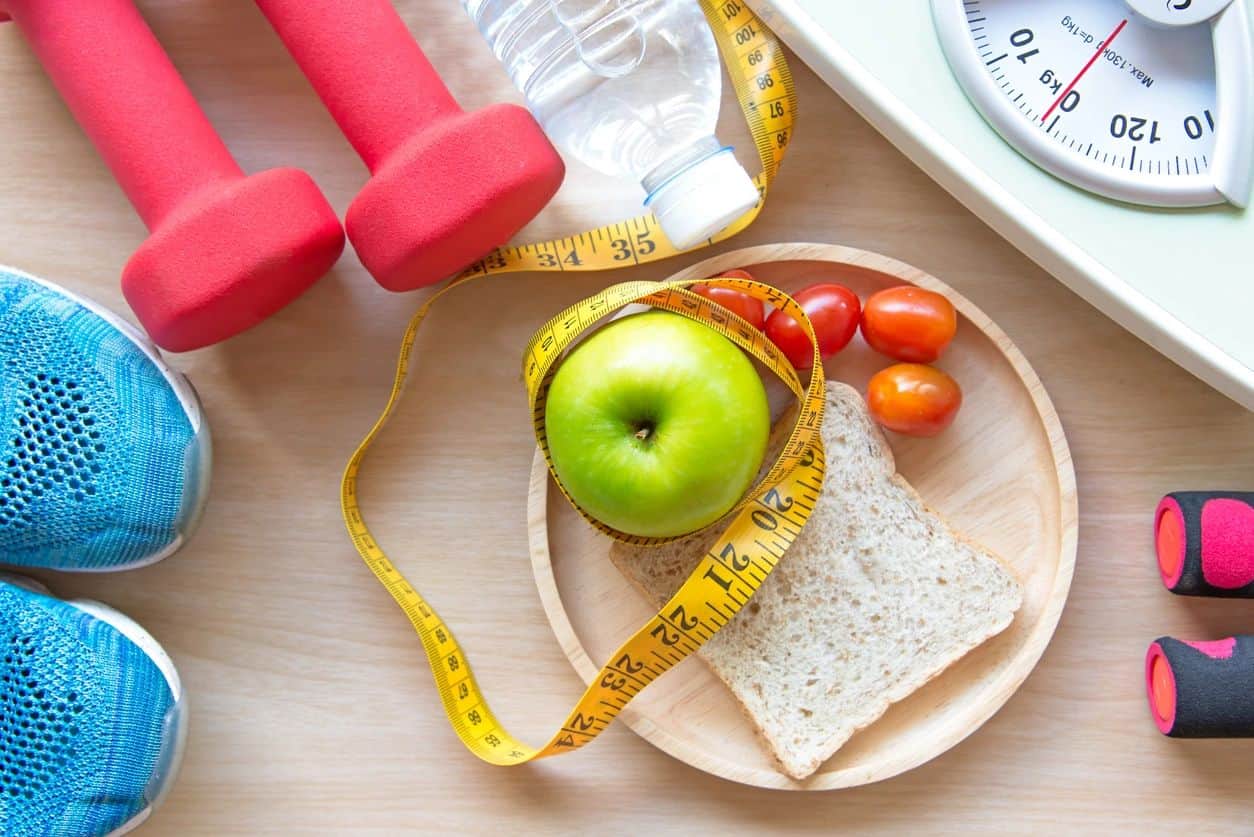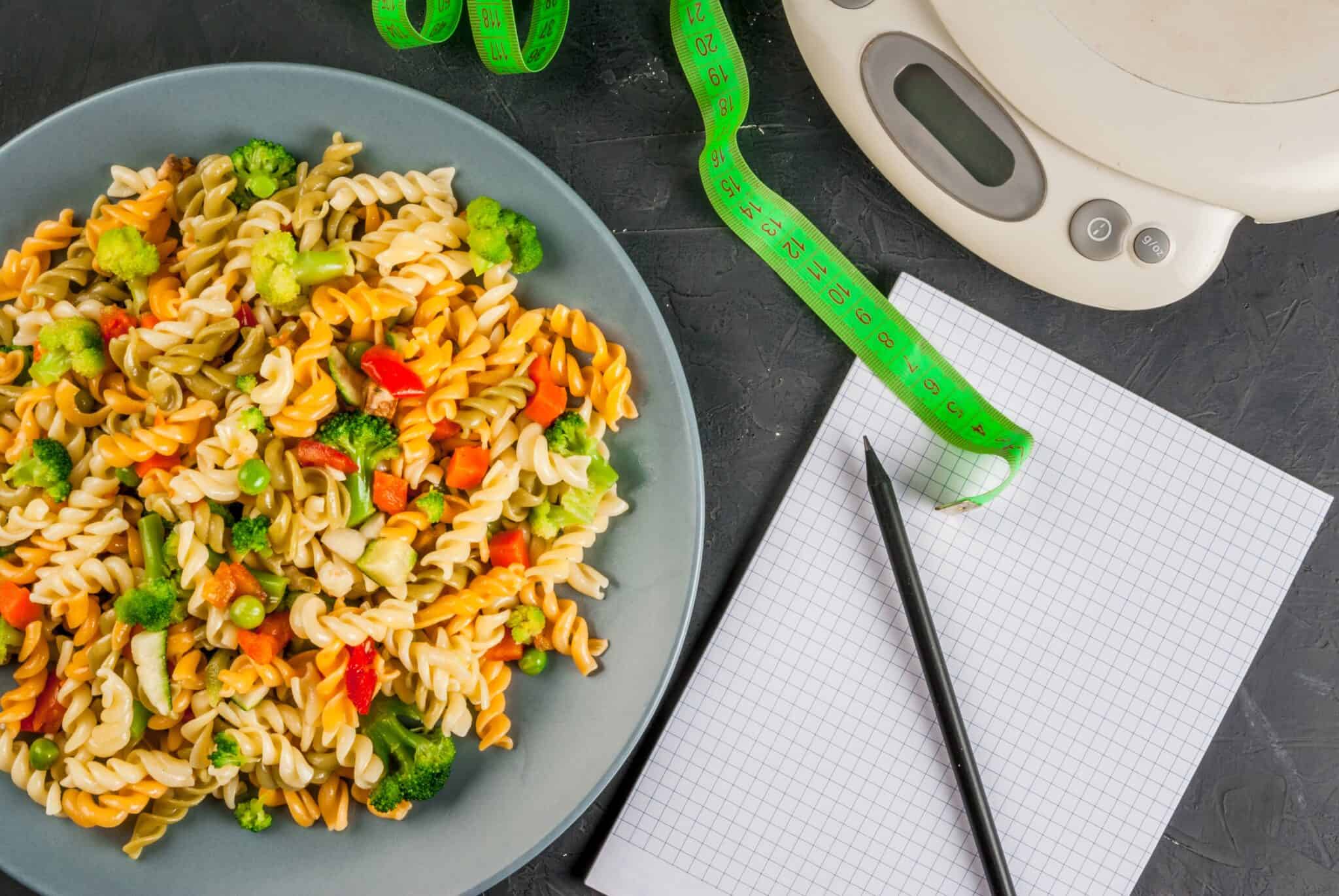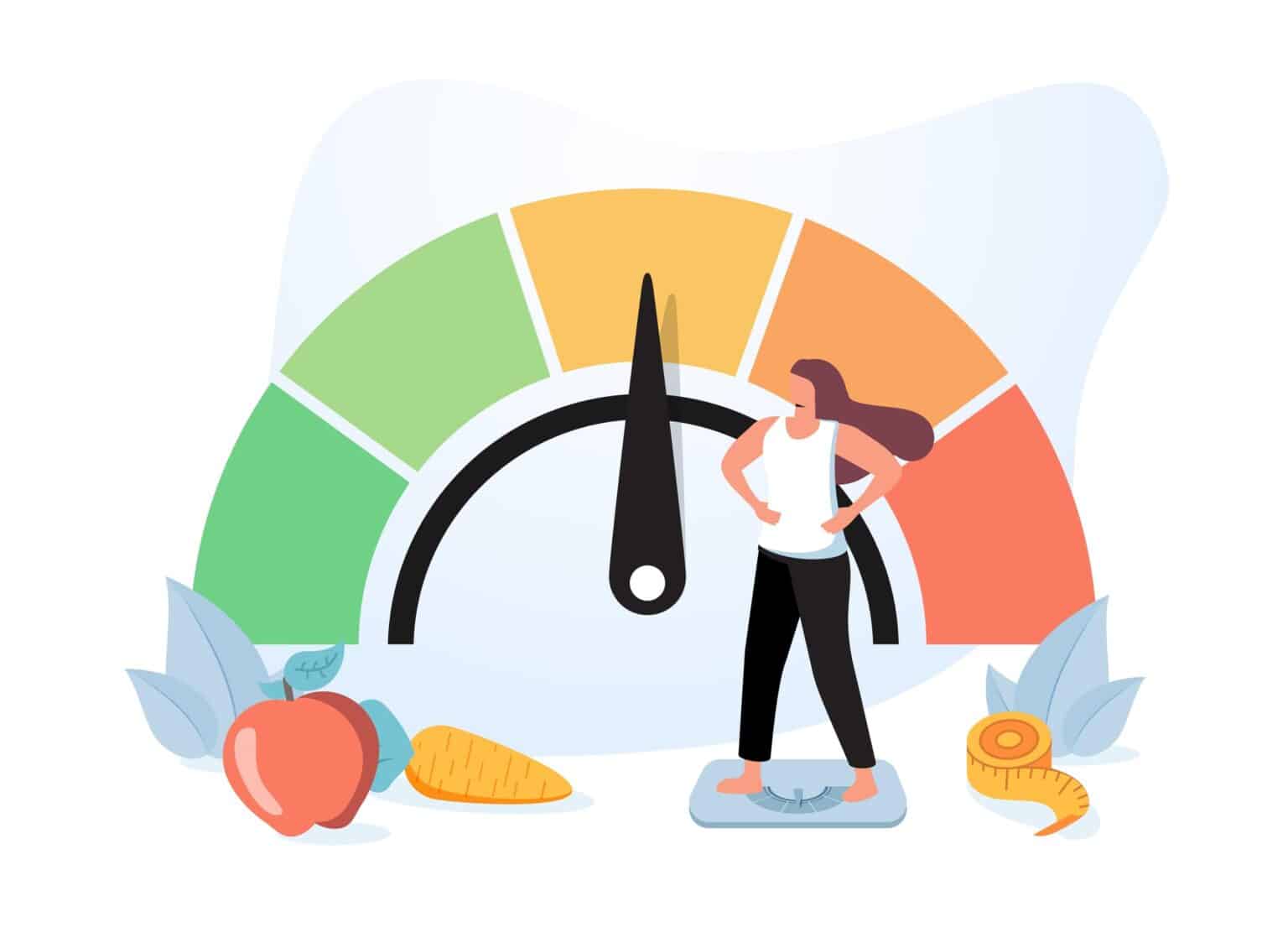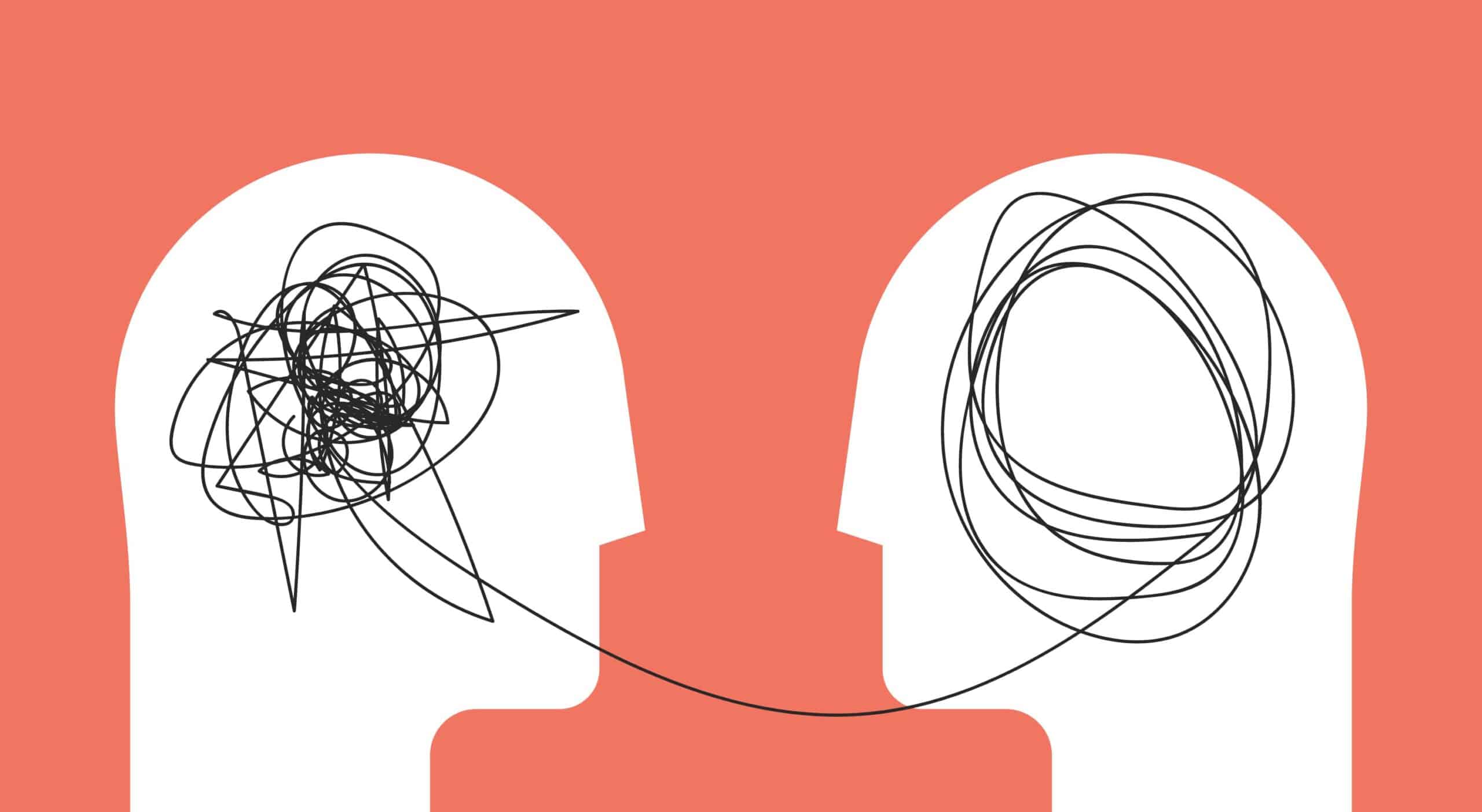Why Embody Health London dietitians practice from a non-diet approach
When people find out that we are dietitians who don’t recommend diets, the response we get is usually confusion – but it’s true! At Embody Health London, our dietitians practice from a non-diet approach. This means that we don’t recommend dietary rules or restriction for weight loss, and instead focus on cultivating a positive relationship with food with our clients. By the end of this article, we think you’ll understand why!
What is a diet?
Firstly, let’s define what this article is about! When we talk about diets, we’re not just talking about “lose weight quick!” schemes. Instead, we’re referring to any effort to restrict, control or monitor what you eat, especially with the intention of changing your body. Of course, this excludes avoiding foods based on things like allergies, medical issues or ethical reasons.
Keep reading to hear our top three reasons for why you shouldn’t go on a diet.
ONE: Dieting is unsustainable
You might have noticed in the past that when you’ve been on a diet, it’s incredibly hard to maintain. You end up having “cheat days” or giving up on it all together. But did you know that it’s because your body is biologically programmed that way?
The restrict-binge cycle is a phenomenon you’re probably familiar with, even if you have never put a name to it. When you wait until you’re famished before you eat, and then find yourself shovelling down anything you can get your hands on as quickly as you can, that’s the restrict-binge cycle in action.
Research has consistently found that binge eating episodes are often triggered by restriction, especially when that restriction takes the form of missed meals.1
This is because the body is much cleverer than we give it credit for! When it recognises that it’s in a state of deprivation (whether intentional or not), it switches into survival mode. It triggers extreme hunger and obsessive thoughts about food and eating in an attempt to force you to eat. You may end up eating more than you normally would have, as your body attempts to make up for the calories missed. This is why most people who lose weight regain it all (and sometimes more) within four years.2
Over time, dieting can lead to starvation syndrome. This is a state triggered by restricted calorie intake, purging and excessive exercise, and can occur at any body weight.
The most well-known study of starvation syndrome took place in the 1940s, and is now known as the Minnesota Starvation Study.3 Thirty-six physically and psychologically healthy men were selected for the study, and for three months, they ate normally and their behaviours were studied in detail. Next, their food was restricted to around half of their former intake for a period of six months. Interestingly, this “starvation diet” was higher in calories than many of the weight loss diets we see promoted on social media!
The results of the study were eye-opening, with the previously healthy men quickly experiencing the drastic effects of starvation.
Physically, the men experienced increased hunger, reduced strength, tiredness, dizziness, decreased heart rate and respiration, and their metabolisms reduced by up to 40%. Psychologically, they had increased depression and anxiety, mood swings, emotional distress and were highly irritable.
They also had drastic changes in their eating attitudes and behaviours. The participants reported feeling obsessed with food, talking, reading and daydreaming about food constantly. They began binge eating and smuggling or hoarding food, and experienced significantly worsened body image.
In the period following the starvation period, these symptoms gradually reversed. It took around eight months of refeeding for most participants to return to normal eating habits.
The body doesn’t know the difference between a diet and starvation – it responds in the same way whether the restriction is intentional or not!
Starvation syndrome often goes unchecked because its symptoms are considered “normal” in our diet-driven world. We are taught that we need to diet because we are out of control around food – however, it is the dieting itself causing this phenomenon! When you stop restricting and begin to allow yourself freedom around food, the symptoms of dieting (aka starvation) will begin to ease.
TWO: Dieting is not necessary to improve health
Following weight loss, the next most common reasoning we hear for going on a diet is in the name of health.
We can totally respect this! It’s a beautiful thing to want to take better care of yourself. But here’s the catch – dieting is not the way to do that. In fact, it’s more likely to worsen your health than improve it.
While we have all been taught that “obesity” increases our risk of poor health, evidence is emerging that this is actually caused by weight cycling – the recurrent losing and gaining of weight as a result of dieting, which we now know is unsustainable.
For example, a study that took place across 16 years found that weight cycling was associated with a significantly higher risk of death.4 A different study of more than 10,500 men found that the greater their weight variability, the greater their risk for cardiovascular disease.5 Yet another study of almost 34,000 women found weight cycling was associated with a significantly increased risk of heart attack and stroke.6
In other words, maintaining your weight, even if it’s higher than your ideal, is safer and healthier than dieting.
THREE: Dieting increases the risk of developing an eating disorder
While dieting cannot be said to cause eating disorders (they’re a much more complex condition than that), it is often a precursor. In fact, research has found that between 20% to 25% of dieters develop an eating disorder.7
This appears to be especially risky in children and adolescents, with one study finding teenagers who diet at a moderate level are five times more likely to develop an eating disorder than those who don’t.8
Despite dieting being considered a “normal” part of life in our society, it’s not necessary and it’s certainly not safe!
So if not dieting, then what?
If you’re wanting to take better care of your body and your health, there are an abundance of more effective strategies than dieting.
Instead, try focussing on things like:
- Adding more fruits and vegetables into your diet
- Finding a type of movement you love
- Cutting back on alcohol and cigarettes
- Improving your sleep quality
- Optimising your hydration levels
- Prioritising your mental health
- Connecting with friends and family
If you wish to live a life free from dieting but aren’t sure where to start, book a free enquiry call with one of our expert dietitians to learn about how we can support you on this journey.
Karli Battaglia MDiet, APD
EHL Team x
References
- Elran-Barak R, Sztainer M, Goldschmidt A, Crow S, Peterson C, Hill L et al. Dietary Restriction Behaviors and Binge Eating in Anorexia Nervosa, Bulimia Nervosa and Binge Eating Disorder: Trans-diagnostic Examination of the Restraint Model. Eating Behaviors. 2015;18:192-196.
- Nordmo M, Danielsen Y, Nordmo M. The challenge of keeping it off, a descriptive systematic review of high‐quality, follow‐up studies of obesity treatments. Obesity Reviews. 2019;21(1).
- Keys A, Brozek J, Henschel A, Mickelsen O, Taylor H. The Biology of Human Starvation. Minneapolis, MN: University of Minnesota Press; 1950.
- Oh T, Moon J, Choi S, Lim S, Park K, Cho N et al. Body-Weight Fluctuation and Incident Diabetes Mellitus, Cardiovascular Disease, and Mortality: A 16-Year Prospective Cohort Study. The Journal of Clinical Endocrinology & Metabolism. 2018;104(3):639-646.
- Strohacker K, Carpenter K, McFarlin B. Consequences of Weight Cycling: An Increase in Disease Risk?. Int J Exerc Sci. 2009;2(3):191-201.
- French S, Folsom A, Jeffery R, Zheng W, Mink P, Baxter J. Weight variability and incident disease in older women: the Iowa Women’s Health Study. International Journal of Obesity. 1997;21(3):217-223.
- Shisslak C, Crago M, Estes L. The spectrum of eating disturbances. International Journal of Eating Disorders. 1995;18(3):209-219.
- Spear B. Does Dieting Increase the Risk for Obesity and Eating Disorders?. Journal of the American Dietetic Association. 2006;106(4):523-525.










